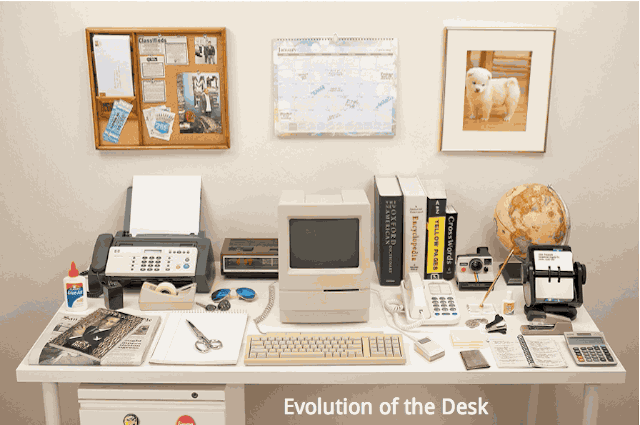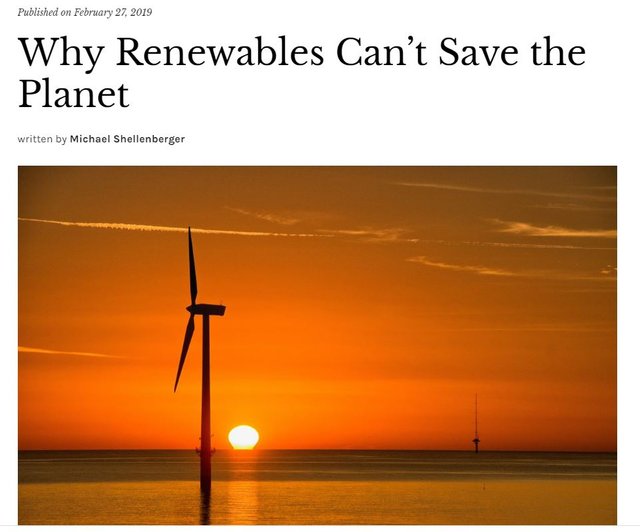Living In An Artificial Environment – Examining Anxiety Surrounding Technology & Climate Change
As life progresses and I interact with a much larger and diverse group of individuals — each with his or her variation in mentality, disposition, background, and outlook —what becomes clearer is that most people firmly believe that general anxiety levels are on the rise.
This is something I have alluded to previously in discussing why mental health is an issue that warrants much more attention.
With many reasons to be anxious nowadays, the most oft cited being the level of interconnectivity and information flow facilitated by the internet and social media channels, what I find to be amongst the largest sources of anxiety are really two things: technology and the environment.
Technology
People are growing uneasy with advancements in technology, especially when considering how rapidly society has changed since the advent of the internet, the digital economy, and the entire paradigm of “software is eating the world.”

Tune into the “software eating the world” narrative nowadays and the single largest antagonist is clearly artificial intelligence and the ensuing automation of nearly everyone’s job within a 10-20 year timeframe.
We are being led to believe that machines will replicate anything and everything us humans currently do in the workplace, outside of a few highly creative or strategic niches being the consolation.
Considering that nearly everyone’s job has some form of repetition or menial task completion associated with it, the suggestion is that these machines equipped with quantum computing capabilities and omniscient, all-knowing artificial intelligence software will pose a threat to every type of career path and income-producing ability.
It is no surprise, then, that this same group of people making these suggestions cite images of Skynet and endorse the concept of UBI (Universal Basic Income), which is just another way of socializing losses.

While the anxiety surrounding technology, its impact, and most importantly, its rate of impact on the cohesion of our societies is well justified, only one word comes to mind when listening to people who feel that artificial intelligence and automation spell the climax of what is technologically feasible: hubris.
I have seen, first-hand, what many of the AI technologists are working on and to say that we are nowhere near modeling anything as sophisticated as the human brain would be a severe understatement. This is to say that we are nowhere near an inflection point in the Humanism movement.
While the field of AI and machine learning will inevitably grow and accelerate in the coming years and decades, with respect to both human and financial capital, to suggest that AI will take over and render human cognition useless is erroneous and sensationalist.
The thing to ask yourself is this: who are the people suggesting these outlandish claims? What industry do they work in? How do they make money??

Perhaps, they are working in the field of AI and like everyone else in any industry, are simply talking their book in order to (a) raise money from investors (b) sell their product or service (c) cannot sense daylight (d) all of the above.
Skepticism accounted for, one can simultaneously be optimistic and bullish on these very technologies for several reasons. But, there’s one reason in particular.
Over the course of the last few decades, we’ve accumulated such a rich dataset of how our world operates, from the atomic level all the way to the macro level, that in order to draw insight from this dataset we need a computing system that is much faster, unbiased, and tireless in its pursuit of quantitative analysis.
This is exactly what AI offers us: a solution for wholesale data analysis to equip ourselves, our governments, our institutions, our universities, and our real problem-solvers with the proper agency to make informed decisions regarding the increasingly complex issues we currently face.
Not to mention the fact that entire industries in IoT, increased bandwidth (5G), and blockchain (to name only a few) are just being developed and will only add richer, more secure datasets with a global purview rather than localized.
Environment
More specifically, AI will aid us in addressing what is clearly the other largest source of anxiety in today’s world: a changing natural environment.
While it is often mocked under the guise of hippie talk, tree-hugging, etc. there is simply no denying that as inhabitants of this planet we have inherent ties to our ecosystem. We are derivatives of our environment and just like in the financial markets derivatives are directly correlated to their underlying.
I believe this is the cause of a general sense of uneasiness when it comes to what is happening in shifting natural patterns that we've grown accustomed to over the last couple hundred years. For sanity's sake, it is worth noting that our environment is, and always will be, in a constant state of flux. However, what I am referring to are fluxes that appear to be beyond the standard deviations; these are the cause of concern for many.
While the pro-environment arguments have become convoluted, varied, and quite frankly, too alarmist for the real message to resonate with everyday people who are looking to earn a living, put food on the table, carve out a meaningful existence, and enjoy their lives to the best extent possible, the other end of the spectrum is simply denying that humans have any impact on our habitat whatsoever.
Is the reality not much more nuanced and, perhaps, somewhere in the middle of these two pseudo theologies?
There is simply no denying that since the dawn of man, as a species, we have done nothing besides directly impact our habitat in order to make it more livable for ourselves. Yet, are we the sole cause of these fluctuations oft-cited as evidence of us destroying our habitat?
Does this not all seem overly simplistic and mirror the rationale and argumentative approach of a child? It certainly does not help that this issue has taken on a religious-like flavor, meaning that logic and reason has taken a back seat to emotion and convenient narrative.
As of this writing, the scientific consensus is that a 4 degree Celsius temperature change will forever change the face of the planet and all the life on its surface. Whether you attribute this delta to anthropogenic emissions or changes in Earth's natural processes misses the larger point entirely.
And the point is that with 7.7 Billion humans (not to mention all of the plant and animal life), changes to natural patterns stand to affect quality of life for more organisms than ever before. This is what we ought to be concerned with: improving quality of life on the maximum scale.
Is it too outlandish to suggest that what we are facing is a highly complex and dynamic problem that is some combination of both anthropogenic and natural processes evolving?
It is reasonable to expect that when facing an issue of this scale, mankind struggles to find the words to articulate viable solutions that take the greatest proportion of people into account.
The insufferable analysis paralysis complex, in action.
How can we expect a person in Armenia to care about water quality in El Salvador? Or a mother in India to care for mining techniques in Australia? How can people who are simply looking to put food on the table and carve out a meaningful existence be expected to care for a complete stranger on the opposite side of the planet, when perhaps, they do not necessarily care for the person who lives next door and watches Fox News?
This is the issue, specifically when it comes to the environment. And this is one of the key advantages that AI will introduce into the discussions taking place around the world regarding the integrity of our ecosystem. It will produce actionable insight derived from analyzing obscenely large data sets and allow us the opportunity to emerge from the analysis paralysis we currently find ourselves in.
Younger generations who directly experienced the taxpayer bailouts of an entire financial industry following the 2008 GFC are well-aware of how power is wielded within a democratic republic driven by entrenched wealthy interest groups.
And who is more powerful than those behind the energy production apparatus, specifically fossil fuels? Entire militaries have been mobilized across the globe and wars have been waged over this stuff for decades.

We are witnessing a clash between the old money and the new money, and while many are quick to paint this out as some sort of revolution, it is quite simply the next iteration upon the single largest global economic and humanitarian driver in energy.
It is a peaceful revolution that will fight itself out in the economy, in regulation, and in the minds of the masses.
While the media likes to portray younger generations as out for blood against fossil fuels, it is healthy to step back a bit. From a human quality of life perspective, fossil fuels are likely the largest humanitarian force in all of mankind’s history.
Think about that.
Energy availability is the single greatest variable required for removing oneself from poverty. With fossil fuels, energy production went parabolic, prices pushed towards the zero bound, and as a result, people across the world were able to afford much more energy density for only a small fraction of the price.
People went from burning wood and candles to readily available electricity in the span of a single, healthy lifetime. This freed up precious time, and rather than spending one’s developing years collecting basic necessities to help the family survive, one could now go to school, gain an education, create and add value to the economy in other ways, and lead a much more prosperous life.
This all in thanks to fossil fuels.
Yet, what is beginning to take hold is the narrative that fossil fuels have reached their peak usefulness. We are Peak Oil, Peak Coal, Peak Timber, Peak Stuff. To see this narrative in action, simply take a look at any basket of offshore oil stocks. They speak for themselves.
Just as Juul displaced 150-year-old cigarette technology (for better or worse), more efficient energy generation technologies are awaiting their time. And the single best path to cleaner, denser energy generation is nuclear.
As Ted Nordhaus and Michael Shellenberger state, "There is no credible path to reducing global carbon emissions without an enormous expansion of nuclear power. It is the only low carbon technology we have today with the demonstrated capability to generate large quantities of centrally generated electric power.”
Huh? Nuclear? You mean Chernobyl, Three Mile Island, Fukushima nuclear?

Surely, the next question that can be anticipated with nuclear is: what about the prospects of solar, wind, and new battery storage technologies?
Without delving too deeply into the weeds on this, I would rather direct to you a very well written report on this topic.

In short, solar and wind are simply not scalable. In addition, they are reliant on mother nature, the very thing we are looking to hedge our energy production abilities from as her weather patterns grow more unpredictable and volatile.
Being reliant on sun and wind patterns is a fatal design flaw. The future will require resilient, antifragile systems in order to maximize stability.
Many believe advancements in battery technology will allow for extra energy capacity generated by solar and wind to be preserved and stored for use at night-time, or during times of no wind or sun.
While battery technologies will improve substantially moving forward, the major constraint that battery technologies will face in short time is one of resource availability and the environmental impact produced by the mining of these resources.
For one, the rare earth metals required for batteries are often exactly that: rare, under earth, and metallic. Sounds like a pretty resource-intensive process to obtain these, don’t you think?
Not to mention all of the security, warehousing, and transportation costs that go into mobilizing these unearthed rare-earths and then distributing them across the global economy. A process which entails these things travelling the world’s seas 24/7 and consuming, you guessed it, energy:

This is exactly one of the reasons why I am incredibly bullish on rare earth metals, and more broadly, energy. Ironically, as the anti-fossil fuel and pro-renewable energy narrative plays out the demand for rare earth metals and oil will outpace stockpiled and in-development supply. Prices will react accordingly.
Considering where most commodity and energy stocks sit nowadays, the asymmetry is appetizing.
Yet, as we’ve already discussed this cannot be the true path to a decarbonized global energy infrastructure. The path towards that is nuclear, which is why uranium, vanadium, hydrogen, and numerous other ancillary plays present fascinating upside as well.
Closing Thoughts
No matter how this plays out, it seems to me that two of the largest groundswell movements and narratives on the planet seem to be aligned with the health of our planet, and the economic and social impact of technology.
Distilling this notion down even further, what we really have is man’s quest for survival.
Regarding technology, people are anxious because they fear technology will replace their jobs and minimize their income-producing abilities, thereby directly impeding a progression in quality of life. It affects their chances of thriving and surviving.
Speaking towards our environment, it is becoming clearer that our industrial revolution based energy generation methods are outdated and ripe for disruption in the new millennium. For those of you who disagree with that last statement, I invite you to simply investigate the quality of your very own water supply, the quality of the air you breath, the chemicals present in/around the foods you consume, and speak with an elder who grew up before your particular locale underwent its population explosion.
Second and third order thinking around this environmental anxiety creates doubt around whether the governance systems man has created in governments can see past money and status to these larger issues. The survival of our species, and the survival of the social contracts we’ve created over the last couple hundred years are being called into question.
~~
Many of the solutions to some of the largest problems we have ever faced as a civilization already exist. They are merely waiting for public perception and the ensuing human and financial capital inflows in order to make them pragmatic options.
Whether these solutions lie in pulling carbon from the atmosphere, improving nuclear reactors, more functional water desalination plants, alternative energy generation methods, new battery technologies that do not require rare-earth metals, advancements in materials science that replicate rare-earths, the point remains that we will need tireless, automated, unbiased data aggregators and analyzers working behind the scenes to weigh the pros and cons of each proposed solution and provide the creative, autonomous, and personally vested human operator with insight to act on.
This is one of the key distinctions that AI will offer us.
Granted, we still need to overcome AI being levered in a psychological manipulation setting by tech monopolies looking to harvest profits in addition to governments leveraging mass surveillance and suppression functionality. We appear to be entering a new phase of common knowledge as it relates to this issue .
AI will not have an agenda, only the people developing and deploying the AI will. And with the internet infrastructure already well-established, unbiased and purely quantitative synthesis of information will leak out into the ether and inform people towards the most practical solutions that minimize environmental impact, minimize economic costs, and maximize the number of lives improved.
Information asymmetries will be leveled off, and rather than data monopolies holding the keys to the kingdom, a mass peer-to-peer distribution of accurate information will take place.
Undoubtedly, this will meet considerable resistance in the form of governments, militaries, transnational corporations, international banks, media, large tech companies, and any number of people who somehow monetize the status quo as is, which is probably more people than we may care to admit to. This is why great things require time and patience.
Technology is something to be monitored, yet, on the long term it is necessary and vital to our society improving and thriving. It will continue to be the most important tool for human ingenuity and creativity to find solutions to highly complex systems (global economies, weather patterns, scientific applications, etc.) and mitigate suffering, just as it has all throughout human history.
While there will be headaches (i.e. job loss), in the long term this sacrifice will be viewed as a small price to pay for a tool that allowed us to help us help ourselves via ensuring the health our economic cohesion and that of our planet.
Environmentally speaking, we have already seen how citizen movements, scientific communities, and legislation can curb the effects of environmental damage. The best example of this is the grass roots movement that led to an internationally coordinated ban on ozone-depleting aerosols via the Montreal protocol
The best thing that any individual can during these times is to arm themselves with the knowledge and wisdom to form their own well-informed opinions, maintain an open mind that adjusts with new information, trust their intuition, question ulterior motives, and look out for family, friends, neighbors, and environment.
As things inevitably change moving forward, I intend to closely monitor and manage the construction of my new world just like that of a project manager overseeing a host of subcontractors with unknown motives and spotty performance track records.
"Just as we must not accept the narrative that humanity inexorably despoils every part of the environment, we must not accept the narrative that every part of the environment will rebound under our current practices. An enlightened environmentalism must face the facts, hopeful or alarming, and one set of facts is unquestionably alarming: the effect of greenhouse gases on the earth's climate.
Despite a half-century of panic, humanity is not on an irrevocable path to ecological suicide. The fear of resource shortages is misconceived. So is the misanthropic environmentalism that sees modern humans as vile despoilers of a pristine planet. An enlightened environmentalism recognizes that humans need to use energy to lift themselves out of the poverty to which entropy and evolution consign them. It seeks the means to do so with the least harm to the planet and the living world. History suggests that this modern, pragmatic, and humanistic environmentalism can work. As the world gets richer and more tech-savvy, it dematerializes, decarbonizes, and densifies, sparing land and species. As people get richer and better educated, they care more about the environment, figure out ways to protect it, and are better able to pay the costs." — Steven Pinker
DISCLAIMER : This content is for informational, educational and research purposes only. This post is not to be taken as personalized investment advice.
Interesting post. Very important issue. I like your optimism regarding AI. Let'shope it will be as you picture.
I do not get anxious about the actual outcome. I think I'll be gone by then. I get anxious about the period in between, the one I am living through. Less privacy, safety and social interaction (despite all the buzz about social networks).
I see it especially in children and teenagers. Their inability to interact with the real world, to use language adequately, to solve problems that involve socializing. They have grown increasingly alienated.
The environment issue is alarming and I am not very optimistic about that. I feel sorry about my children and grandchildren because there is not guarantee that they will have a healthy environment to live in. Most likely they'll be so busy in their gadgets they'll not notice until it's too late.
All valid concerns @hlezama. I find a common thread becoming more commonplace among younger generations is removing oneself from cell phones, computers, and the digital world periodically for a mental breather.
The narrative is slowly shifting away from being available 24x7 to actually living the experience. Of course, this shift is in its earlier stages, but anecdotally I have witnessed more and more people approaching gadgets from this angle while also beginning to realize the importance of privacy as they watch their parents have their SSN, pensions, insurance claims, etc. hacked and exploited.
Regarding the environment, it seems that today's youth are hyperaware of the environmental problem and it causes them great anxiety because they yield very little influence in politics and the economy. Moving forward, of course, this dynamic will change as Millenials/Gen X'ers come into their prime income earning years, gain positions of influence, and become more educated on the complexity of the issue.
Hi maven360,
Visit curiesteem.com or join the Curie Discord community to learn more.
Congratulations @maven360! You have completed the following achievement on the Steem blockchain and have been rewarded with new badge(s) :
You can view your badges on your Steem Board and compare to others on the Steem Ranking
If you no longer want to receive notifications, reply to this comment with the word
STOPVote for @Steemitboard as a witness to get one more award and increased upvotes!